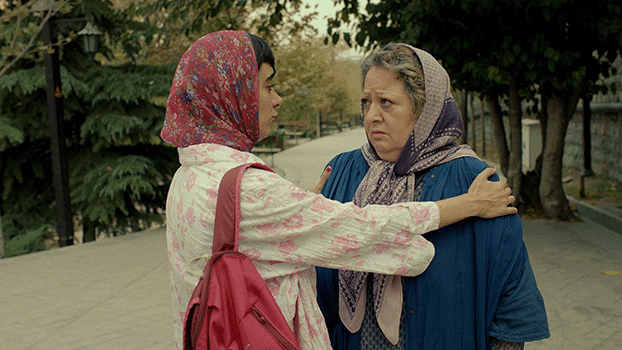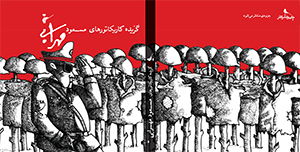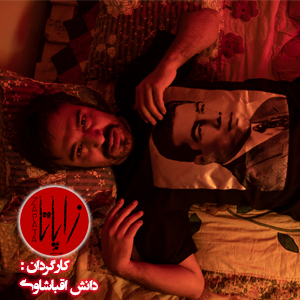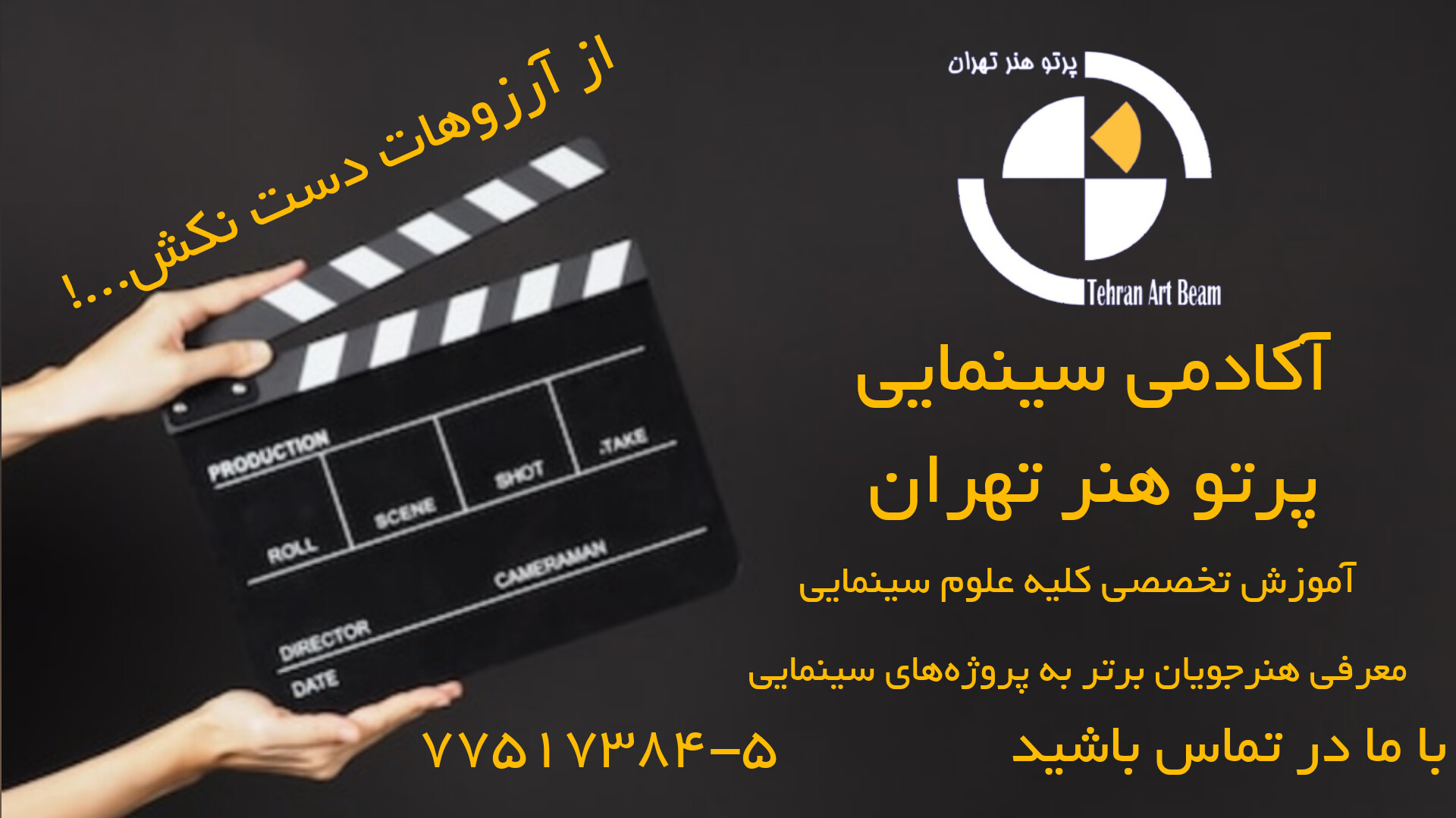
«کیک محبوب من» عنوان فیلمی است به کارگردانی بهتاش صناعیها و مریم مقدم که در بخش مسابقه هفتاد و چهارمین جشنواره فیلم برلین (برلیناله) به نمایش درآمد و با تحسین گسترده مخاطبان و منتقدان روبهرو شد. اگر چه این فیلم از کسب جایزه خرس طلایی ناکام ماند اما جایزه فیپرشی (منتقدان بین المللی فیلم جهان) را به خود اختصاص داد و جایگاهی محترم در میان رسانههای سینمایی جهان پیدا کرد.
کیک که نوعی خوراکی محبوب محسوب میشود، همواره دارای سه ویژگی اساسی است: شیرین بودن، سَبُکی و بافت اسفنجی آن. شیرینی روایت عاشقانه، تعامل و تعادل در سَبکِ سَبُکِ شاعرانه و بافتِ اسفنجی انتقادی، فیلم را به اثری برجسته در تاریخ سینمای اجتماعی ایران بدل میکند.
کیک از منظر استعاری، همواره تداعی کننده حجمی گرد و فُرمی دایرهای است. در ادبیات و سینما، فُرم دایرهای به نوعی از روایت اطلاق میشود که در آن داستان در همان وضعیتی که آغاز شده به پایان میرسد و اغلب از این نوع فُرم روایی برای ارائه، کشف و انعکاس تجربیات و دیدگاههای شخصیتهای زن استفاده میشود. ماهیت چرخهای تجارب زنانه، مضامینی راجع به هویت، روابط و پیچیدگیهای زندگی زنان را در یک بازه زمانی معین و در بستری مسئله گون برملا میسازد.
کاراکتر زنِ فیلم «کیک محبوب من» به نام مهین و با بازی درخشان و روان لیلی فرهاد پور، بازتابی از دانش و آگاهی نویسندگان فیلمنامه از زنانگی پنهان و پیدا را نمایان میسازد. زنانگی مهین در سه محور اصلی پردازش شده است. محور اول رابطه او با زنان دیگر است که این مهم را میتوان در دو سکانس فیلم به شکل مستقیم مشاهده کرد. ابتدا صحنهای است که مهین به همراه دوستانش دور میز ناهارخوری نشستهاند و با زبانی شیرین و طنازانه به روایت تجربیات خود در مواجهه با مردان میپردازند. دوم صحنهای است که مهین در پارکی نشسته و با سر و صدای جاری در محیط، متوجه حضور گشت ارشاد و برخورد با دختری میشود که در نهایت با نقشی حمایتی، مانع از برخورد با او میشود.
محور دوم، تلاش برای ساخت، حفظ و پویایی جهانِ خانواده است. مهین از طریق تماس صوتی و تصویری با دخترش که در خارج از ایران زندگی میکند، ارتباط برقرار کرده و علیرغم بیتفاوتیهای گاه و بیگاه فرزندش، تلاش میکند تا ارزشهای مادرانهاش را بازتاب دهد. محور سوم، انتظاراتِ اجتماعی مهین است. او با مقایسه محدودیتهای اجتماعی و سیاسی فعلی، روزهای خوش جوانیاش را مرور کرده و به سهم خود در تلاش است تا خواستههای نسل جدید دختران ایرانی را فهمیده و با آنها همراه شود.
روایتِ منسجم و جسورانه «کیک محبوب من»، کلیشه روایتهای خطی را مختل کرده و دیدگاههایی جایگزین در مورد عاملیت، خودمختاری و توانمندسازی زنان ارائه میدهد.
این فیلم به دور از نظراتِ افراطی، توانسته به تعادلی مثال زدنی در ترکیب عناصر روایی و فُرمی فیلمهای عاشقانه، شاعرانه و اعتراضی برسد. فیلم «کیکِ محبوب من» از تکرار الگوهای داستانهای عاشقانه جریان اصلی سرباز زده و با مرکزیت بخشی به رابطه زن و مردی سالخورده، شکل دیگر از اروتیسم را پدیدار میسازد. صحنههای اروتیک فیلم مانند دوش گرفتن، رقصیدن، نوشیدن و... همگی با ترکیبی از عناصر تراژدی و کمدی همراه شده و به هیچ وجه به کیفیت ملودرامهای سطحی تنزل پیدا نمیکند.
فیلم یک سینمای رُمان گونه و به تعبیر پازولینی، سینمای نثر نیست؛ چرا که در آن داستان بسیار کوچک شده و جزئیات و لحظهها برجستهاند. این فیلم قصهگویی محض نمیکند، بلکه با درنگ در لحظهها، به عمق چیزی که در جریان است اشاره کرده و مخاطب را به فکر فرو میبرد. دوربین با پرسههای هوشمندانه در زندگی مهین و فرامرز (با بازی متفاوت اسماعیل محرابی)، بار اصلی ساخت میزانسن معنادار را به دوش میکشد. دوربین با دور و نزدیک شدن به کاراکترها، تنهایی و اضطراب آنها در مواجهه با دیگری را به شکلی درخشان بازتاب میدهد.
«کیک محبوب من» از منظر جنبه اعتراضی، در دام شعار نیفتاده و با هوش، درایت و جسارت، مسائل اجتماعی ایرانِ امروز را نقد میکند.
شغل و پیشینه کاری فرامرز، اسکیزوفرنیک بودن ماهیت زنانگی شخصیتِ زن داستان، چندگانگی در خوانش قانون و... از مواردی است که جنبههای اعتراضی فیلم را تقویت میکند.
باغچه حیاط منزل مهین، یک نشانه تمثیلی است که یادآور شعر فروغ و تمام مصرعهای اعتراضیاش است.
کسی به فکر گلها نیست
کسی به فکر ماهی نیست
کسی نمیخواهد باور کند که باغچه دارد میمیرد
که قلب باغچه در زیر آفتاب ورم کرده است
که ذهن باغچه دارد آرام آرام از خاطرات سبز تهی میشود و حس باغچه انگار چیزی مجرد است که در انزوای باغچه پوسیده است.
«کیک محبوب من» باعث میشود دلمان برای باغچه بسوزد، هم برای تنهاییِ خود باغچه و هم برای تنهایی کسانی که مجبور شدند به جای گل، عشقهایشان را در خاک آن بکارند. احتمالا برای همین بود که برادرم به باغچه میگفت قبرستان!
"My Favorite Cake: A Poetic Protest Romantic"
Hamed Soleimanzadeh
FIPRESCI member and lecturer at the University of Göttingen, Germany
Directed by Maryam Moghadam and Behtash Sanaeeha, "My Favorite Cake" premiered at the 74th Berlin International Film Festival (Berlinale) to widespread acclaim from audiences and critics alike. Although the film did not win the Golden Bear award, it received the FIPRESCI Prize (International Federation of Film Critics) and earned a respected place among global cinema media.
"My Favorite Cake," a beloved dessert, is characterized by three essential qualities: sweetness, lightness, and a sponge-like texture. The sweetness of the romantic narrative, the interaction and balance in the poetic style, and the critical-protest sponge texture of the film elevate it to a prominent position in the history of Iranian social cinema.
Metaphorically, a cake is always reminiscent of a round and circular form. In literature and cinema, the circular form refers to a type of narrative in which the story ends in the same situation it began, often used to present, explore, and reflect the experiences and perspectives of female characters. The cyclical nature of women's experiences creates themes about identity, relationships, and the complexities of women's lives within a specific time frame, presenting multifaceted issues.
The character of Mahin, brilliantly portrayed by Lili Farhadpour, reflects the hidden and revealed knowledge of the film's writers about femininity and its hidden and revealed struggles. Mahin's femininity is processed in three main axes. Firstly, her relationship with other women is depicted directly in two scenes. Initially, Mahin and her friends sit around a dining table, discussing their experiences with men in a sweet and playful manner. Secondly, in a park, Mahin observes the efforts of morality police to arrest a girl, ultimately preventing her arrest with a supportive role.
The second axis is the effort to build, maintain, and enliven the family world. Mahin communicates with her daughter, who lives abroad, via audio and video calls, showing signs of Mahin's efforts to reflect maternal values, despite her daughter's occasional indifference.
The third axis involves Mahin's social expectations. she reminisces about her youthful days and endeavors to understand and empathize with the desires of the new generation of Iranian girls.
The cohesive and courageous narrative of "My Favorite Cake" disrupts the clichés of linear storytelling and offers alternative views on agency, autonomy, and empowerment for women. The film, far from extremist views, has achieved a remarkable balance in combining the elements of romantic, poetic, and protest films. "My Favorite Cake" deviates from the patterns of conventional romantic narratives and introduces a different form of eroticism centered around the relationship between an older man and a woman, displaying another form of sensuality.
According to Pasolini's interpretation, "My Favorite Cake" is not a cinema of prose, as it minimizes the story and emphasizes details and moments. The film does not merely narrate a story; rather, it hints at what is happening in the moment, drawing the audience's attention to contemplation. The camera, with its intelligent movements, shoulders the main burden of creating meaningful montage between Mahin and Faramarz (portrayed uniquely by Ismaeil Mehrabi). By approaching and distancing from the characters, the camera vividly reflects their loneliness and anxiety in facing each other.
From a protest perspective, "My Favorite Cake" avoids falling into sloganeering and, with intelligence and courage, critiques current social issues in Iran.
Faramarz's occupation and background, the schizophrenic nature of the woman in the story, and the duality in interpreting the law enhance the film's protest aspects.
The garden in Mahin's courtyard is a symbolic sign reminiscent of Forough Farrokhzad's poetry and all her protest verses:
"No one thinks of the flowers,
No one thinks of the fish,
No one wants to believe that the garden is dying,
That the heart of the garden is withered under the sun,
That the mind of the garden is slowly emptying of green memories, and the feeling of the garden is like something single, rotting in the seclusion of the garden."
"My Favorite Cake" makes our hearts ache for the garden, both for its own loneliness and for the loneliness of those who had to sow their loves in its soil instead of flowers. Perhaps that's why my brother used to call the garden a cemetery!
کانال تلگرام ماهنامه سینمایی فیلم:
https://telegram.me/filmmagazine
آدرس اینستاگرام:
https://www.instagram.com/filmmagazine.official
آدرس کانال آپارات:
آپارات | FilmMagazine.official (aparat.com)
[ماهنامه فیلم شماره ۶۱۲]






































